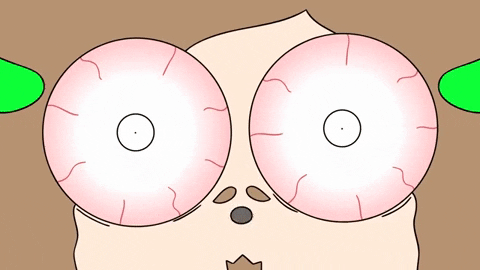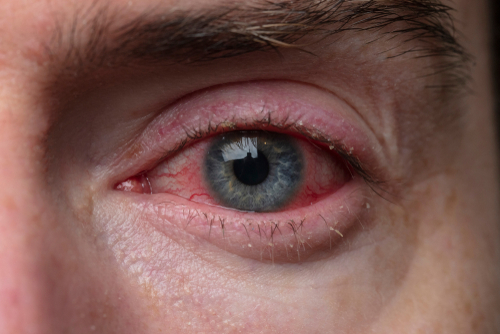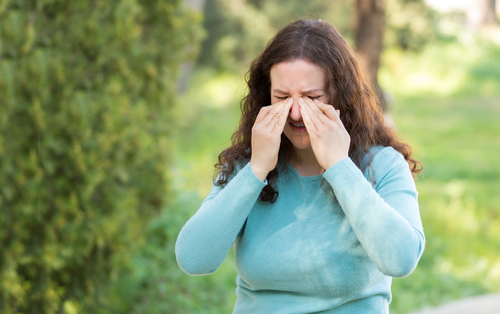Do Your Dry Eyes Need To Be Treated?
Most people have dry eyes at some point in their lives. Many don’t need professional treatment. However, severe persistent cases may require expert attention.
Keep reading to learn more about dry eye syndrome and common treatments you can use to keep your eyes healthy and moist.
What is Dry Eye?
A film of tears and oils protects your eyes from debris and keeps them moisturized all the time. Your body makes and disperses these liquids through ducts in the eyelids.
Dry eye syndrome may make your eyes appear red and feel like they are burning. This discomfort will make you want to blink to try and moisturize your eyes to limit the irritation.

Most cases of chronic dry eyes or dry eye syndrome are due to problems with your tears. Tears are a combination of water, mucus, and oil. Lacking sufficient amounts of one or more of these ingredients is a typical cause of dry eye.
People are more susceptible to dry eyes while on an airplane or in a place where the heat is on. These environments have low humidity, which can quickly evaporate tears. Dry climates like deserts also have this effect.
Exposure to sunlight can also increase tear evaporation because UV rays hasten this natural process. Also, people who swim in chlorinated or salty water may have dry eyes after contact with the water.
Those with seasonal allergies often have worsened symptoms during times with high pollen. That’s because the powdery pollen inflames the blood vessels in your eyes.
This process creates histamine, a chemical signal that makes the eyes tear up and swell to eliminate the irritants. Because of histamine, your eyes may grow red and itchy between spring and fall when there is a lot of pollen.
What Causes Dry Eye?
Situational dry eye is often due to exposure to heat or chemicals. Age also plays a role in many cases of dry eye. People over age 40 have a higher likelihood of dry eye due to reduced tear production as they age.
Females are more likely to have dry eyes because they have drier skin and because of hormonal fluctuations. Menopause and pregnancy can contribute to an increased chance of dry eye.
Medications can also play a role in causing dry eyes. Medicines like antidepressants, birth control, antihistamines, and hormone replacement therapy can all contribute.
Dry eyes can also be a sign of blocked meibomian glands, a more severe condition than situational or environmental dry eyes. The meibomian glands produce the oil needed for your tears.

The glands can become blocked, which causes them to release little or no oil. This condition is known as meibomian gland dysfunction or MGD.
Inadequate lubrication can irritate the eyes. The oil in tears prevents the evaporation of water and mucus from your eyeballs. By preventing evaporation, the oil holds the moisture and nutrients on your eyes and keeps them hydrated.
If your tears are evaporating, your eyes are not getting the moisture and nutrients they need. Chronic evaporation leaves them dry and irritated all the time.
When Should I Seek Treatment?
Get an appointment with an ophthalmologist if dry eye syndrome is disrupting your life. Your eye doctor can help if over-the-counter eye drops or gels are not providing relief.
Burning and irritated eyes should not detract you from any of your everyday activities. The condition requires treatment if it’s making it difficult to read, drive, or be in social settings.
You can treat meibomian blocks with warm compresses to break up the oil blockages. Massaging the area after a warm compress can encourage the block to disintegrate.
You can also stop tears from draining out of your eyes to keep them hydrated and healthy. Punctal plugs limit tear drainage to improve eye moisture levels.
These plugs get placed in the drainage canals in the corner of your eyes to keep moisture from leaving. They can be permanent or temporary.
Permanent punctual plugs are silicone, while temporary plugs are collagen so they can dissolve. There are also prescription long-lasting eye drops that combat rapid evaporation.
Dry eye syndrome may also be a side effect of refractive eye surgeries like LASIK. Call your eye surgeon if you’re experiencing dry eye after a procedure. The discomfort may be temporary or could require treatment to prevent damaging your eyes and affecting your vision.

Many people go to the eye doctor because allergy symptoms are worsening their dry eyes. The doctor may recommend prescription eye drops to use when pollen counts are high.
The ophthalmologist might suggest a routine to increase natural eye lubrication. A regimen like periodically blinking for several seconds can prevent tear evaporation.
How Can I Prevent Dry Eye?
There are links between tobacco use, mainly smoking, and decreased tear production. Work with a physician to stop smoking or using tobacco products.
Discuss your current medications with your eye doctor if you’re concerned about dry eyes as a side effect. They can adjust the dosage or suggest other medicines that do not have this risk if they think it will help.

Wear sunglasses and a hat outside to protect your eyes against UV rays. Sun and wind exposure can dry out your eyes. Protecting them from these environmental stimuli is a simple solution to try.
Learn about your family health history. Ask immediate relatives if they have dry eye syndrome.
Conditions like rheumatoid arthritis and diabetes can also cause dry eye syndrome and may be genetic. This information can help your eye doctor determine your likelihood of developing dry eye syndrome.
Many eye doctors tell dry eye patients to take visual breaks. Closing your eyes for a few moments every half an hour will spread tears and oil. This simple habit can limit dry eye symptoms while you’re working with screens or doing a long shift.
Are dry eyes interfering with your daily life? If you feel like you can never keep your eyes hydrated and comfortable, it might be time to get professional help.
Schedule an appointment at Complete EyeCare West in Columbus, OH. Stop living in discomfort today!







